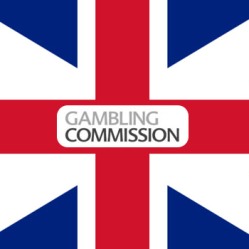UKGC Unveils New Social Responsibility Updates To LCCP

In an effort to push for a safer gambling environment, the UK Gambling Commission (UKGC) has unveiled a range of updates to its License Conditions and Codes of Practice (LCCP) which are now scheduled to take effect starting May 8th. Changes to the current system follows a consultation which took place in 2014 on the subject of “Strengthening Social Responsibility,” which found that operators needed to do more to reduce the risk of problem gambling. The new regulatory measures subsequently recommended cover a broad range of problem gambling-related issues, some simply considered good practices, and others deemed necessary in order to satisfy the requirements for receiving a UKGC license.
Identifying Problem Gamblers
The UKGC has insisted operators must do a better job of identifying those customers more susceptible to problem gambling, even though they may not have yet displayed any obvious signs of being at risk, and be able to arrange better customer supervision on site at their various gambling venues.
A Single Self-exclusion Request
Both land-based gambling venues and internet sites will be required to do more to assist players curb their gambling habits, which in the case of land-based operators means setting up a self-exclusion system by April 2016 enabling a customer to make one request to a company that would allow him to be excluded from all other similar establishments in the area. Online operators will also be expected to provide a national self-exclusion service by 2017, in addition to a “time-out” facility enabling players to set a timed on-screen check which would help them review their expenditure and take a break from gambling if necessary.
A Debate On Anonymous Gambling
Gambling Commission’s Chair, Philip Graf, has also called out for a debate to be held on the subject of anonymous gambling, which refers to the ease by which either an online or land-based gambler is able to track his spending. While spending can more easily be monitored online, as far as land-based venues are concerned, gamblers being able to freely access cash machines obviously complicates matters, and as Graf explains:
“We have reached the point at which it is clear that much more could be achieved if anonymous gambling in cash was not such a prominent feature of land-based gambling. Removing anonymity of course raises its own challenges and it is time for a proper public debate on the costs and benefits of doing so”
How Will It Affect UK Revenues?
Over the last decade, the UK’s internet gambling industry has experienced an uninterrupted run of double-digit yearly growth, and between April 2013 and March 2014 generated roughly 17% of the total gambling market worth £6.8 billion ($10.6bn). After the UK’s new iGaming law were implemented in the past few months, including introducing a remote licence fees and a 15% Point Of Consumption tax, there were worries the country’s gambling industry would suffer a fall in business. Fortunately, this has not yet proven to be the case, and in further signs of the needs of consumers being taken seriously, last month the Senet Group, an independent self-regulatory body of bookmakers such as Ladbrokes, Paddy Power, William Hill, and Coral, has now introduced measures that require around 20% of their shop window advertising to show responsible gambling messages.
Is Casino-style Social Gaming Next?
Another issue which has come under greater scrutiny by the UK Gambling Commission in recent times is the hot topic of “casino-style social gaming”, and whether the industry should be regulated. The Gambling Commission and the International Social Gaming Association (ISGA) even commissioned various studies on the dangers of allowing players to monetize their social gaming experience, but so far the findings have failed to confirm or point to a pattern of addictive gambling behavior. Commenting on the matter, a British Gambling Commission statement explained:
“There is no compelling reason at the moment to impose additional regulation on the social gaming sector but will continue to monitor the issue of social gaming and emerging evidence from a variety of sources, working in partnership with the industry and other regulators.. While the data suggests that, in general, the vast majority of people who play social games spend very modest amounts of time and money, there is clearly a very small cohort who spend significant amounts. However, it is likely that this group is insufficiently large to justify any form of additional regulatory intervention.”










